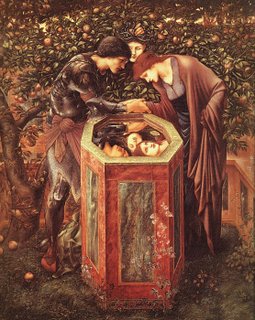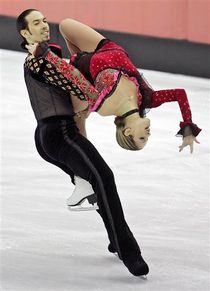Janet‘s book, Dedication, has won the title of Best Traditional Regency at the website All About Romance. Click here for all the winners.
Congratulations, Janet!
–Your fellow Riskies
Janet‘s book, Dedication, has won the title of Best Traditional Regency at the website All About Romance. Click here for all the winners.
Congratulations, Janet!
–Your fellow Riskies
 Hi. It’s me. Maybe you missed me yesterday? Well, I did! My brain was involved in a historical I was reading for the annual RITA contest and it didn’t come up for air. I have two extreme ways of being: completely focused, or completely not! Well, anyway…I thought I’d crack open that old discussion about rating/reviewing books.
Hi. It’s me. Maybe you missed me yesterday? Well, I did! My brain was involved in a historical I was reading for the annual RITA contest and it didn’t come up for air. I have two extreme ways of being: completely focused, or completely not! Well, anyway…I thought I’d crack open that old discussion about rating/reviewing books.
Here are the rules I try to play by:
Be Objective. This means that I take your personal preferences out of the mix. If there’s a type of romance I don’t care for, I don’t judge on that basis. I look at how this romance compares to the standard of its type.
Don’t be a copyeditor. It isn’t the copyeditor you are judging, it’s the author’s work. A few typos, grammar errors or inconsistencies I can overlook. (I might add that I am doing ‘first round’ judging–the finalists will be judged a second time).
Look for something special that makes the book stand out. That may be the use of historical detail; the characters; the way the story draws me in and keeps my interest; the way the story explores its theme, taking me deeper throughout; the writing itself; the way the story plays out, keeping me engaged until the end–so that when I close the book I feel that it kept its promise and did not let me down.
It is difficult sometimes. We all have little things that we dislike that may or may not be an issue for anyone else–that may in fact be expected in the kind of romance we are reading. Yes, we do talk about clothes in traditional Regencies–not always, but we do. We often are writing about the upper classes in England. They had money, society was important, and they wore fashionable clothes, and sometimes it is expected that we tell what they were wearing. A judge may dislike references to fashion, but she should consider the genre.
I have a problem with cliches–little ones, like “her feet were encased in white satin shoes” instead of “she wore white satin shoes,” and various parts of a woman’s finery being referred to as “a confection of …,” and so forth. Just little word combinations that were fresh once but that have been repeated many times. But I don’t let this throw me when judging. I look at the big picture.
Having said all this, I still struggle. So…I would like to hear what you all look for in a book when reviewing it or judging it. What standards do you hold yourself to? Where do you draw the line between objectivity and subjectivity?
And finally…what do you think makes a winning book?
Laurie, with more questions than answers!
LORD RYBURN’S APPRENTICE
Signet, January 2006
Last week, I talked about getting started again after a long break. I did start again, but I am in the middle of writing a scene I absolutely hate, and I am not sure if that means the idea behind the scene stinks, or if my writing stinks and the idea is good, or what. So I am going to finish writing the scene, gritted teeth and all (my heroine DOES get to knock someone out, which is cool, but the hero doesn’t arrive until later, late bastard), but meanwhile, my brain has been doing its best to keep me away from productive time at the keyboard.
So I’ve pulled out a fun book to browse through, Nicholas Parsons‘ The Book of Literary Lists (I cited a Barbara Cartland quote on my own Diary yesterday; click here to read it). And discovered this:
 Samuel Taylor Coleridge‘s Four Classes of Book Reader
Samuel Taylor Coleridge‘s Four Classes of Book Reader
Sponges, who absorb all they read and return it nearly in the same state, only a little dirtied.
Sand-glasses, who retain nothing, and are content to get through a book for the sake of getting through the time.
Strain-bags, who retain merely the dregs of what they read.
Mogul diamonds, equally rare and valuable, who profit by what they read, and enable others to profit by it also.
 I wish I were a mogul diamond, but I think I must confess to being a sponge: I read a lot, and don’t always think too hard about what I’ve just read. Sometimes I read just to keep my mind occupied, sand-glass style, but I do retain more than nothing. My mom is a sand-glass–she can barely remember what’s happening WHILE she’s reading the book, but she reads all the time, and is an even faster reader than me, and I am pretty darn fast.
I wish I were a mogul diamond, but I think I must confess to being a sponge: I read a lot, and don’t always think too hard about what I’ve just read. Sometimes I read just to keep my mind occupied, sand-glass style, but I do retain more than nothing. My mom is a sand-glass–she can barely remember what’s happening WHILE she’s reading the book, but she reads all the time, and is an even faster reader than me, and I am pretty darn fast.
So–do you think Coleridge is right in his categories? What kind of reader are you? And, as a bonus question, if you were to read a scene where the previously meek heroine decks a guy, would you hate it?
Thanks for sharing–
Megan
www.meganframpton.com

What are our books really about? Is there one central theme common to the books you write, or to the books you enjoy reading?
This has been on my mind ever since I and some other romance writers were interviewed for a local news bureau’s story on St. Valentine’s Day. Note that we were all St. Valentine Day losers–there was a distinct lack of caviar, chocolate, champagne or heart-shaped hot-tubs in our lives, and the reporter adopted that arch “I’m only writing about romances” tone we’re all so tired of hearing. Her first question to me–and she didn’t include this in the interview–I thought was the most interesting one. She asked me, in a rather patronizing tone, whether romances were “only about people falling in love and getting married, and about families.”
And I asked her what other sorts of stories there were. I believe that’s what all stories are about, when it comes down to it. Even in Beowulf the monster has a mother. If you’re interested in the whole storytelling-myth-archetypes topic, check out Christopher Vogler’s The Hero’s Journey, or, if you’re feeling really brave, you can tackle Joseph Campbell whose whole area of scholarship was on the subject.
If I had to give a quick definition of what I write about (naturally I have this suspicion that I’m writing about the same people all the time and/or I’m writing about myself, both of which are to a certain extent true), I’d respond that I like to write about people discovering their true identity.
How about you? Do you find common themes in the books you write or the books you find memorable reads?
Janet
 Kathleen Bolton and Therese Walsh of Writer Unboxed make a point that fiction writers can learn from other medias of art and entertainment. I love watching figure skating, and think a well-choreographed ice dance or pairs’ routine has many parallels to a romance novel.
Kathleen Bolton and Therese Walsh of Writer Unboxed make a point that fiction writers can learn from other medias of art and entertainment. I love watching figure skating, and think a well-choreographed ice dance or pairs’ routine has many parallels to a romance novel.
Sadly, in a romance I have read recently, it was as if the hero and heroine met at center ice, then skated off to opposite ends of the rink where they noodled around a bit before rejoining for a kiss at the end. In another it seemed the couple started at opposite ends and spent the entire routine taking baby steps toward one another.
It’s a syndrome writers sometimes call the Sagging Middle. No, it’s not what happens when the writer consumes too many Pepperidge Farm Mint Milanos under deadline pressure. It’s when the writer has problems coming up with a conflict that forces the couple together and makes them work for that happily-ever-after.
If we think about the hero and heroine as ice dancers, though, we’d remember:
Right now I’m trying to figure out what will happen in the middle of my work-in-progress. In the synopsis, this part basically reads, “interesting things will happen here, trust me”.
Fellow writers, how do you attack the Sagging Middle?
As readers, what sorts of conflicts keep you turning the pages?
Elena
LADY DEARING’S MASQUERADE, RT Reviewers’ Choice Award nominee
http://www.elenagreene.com/
